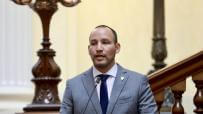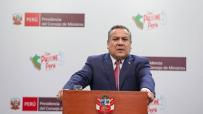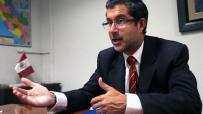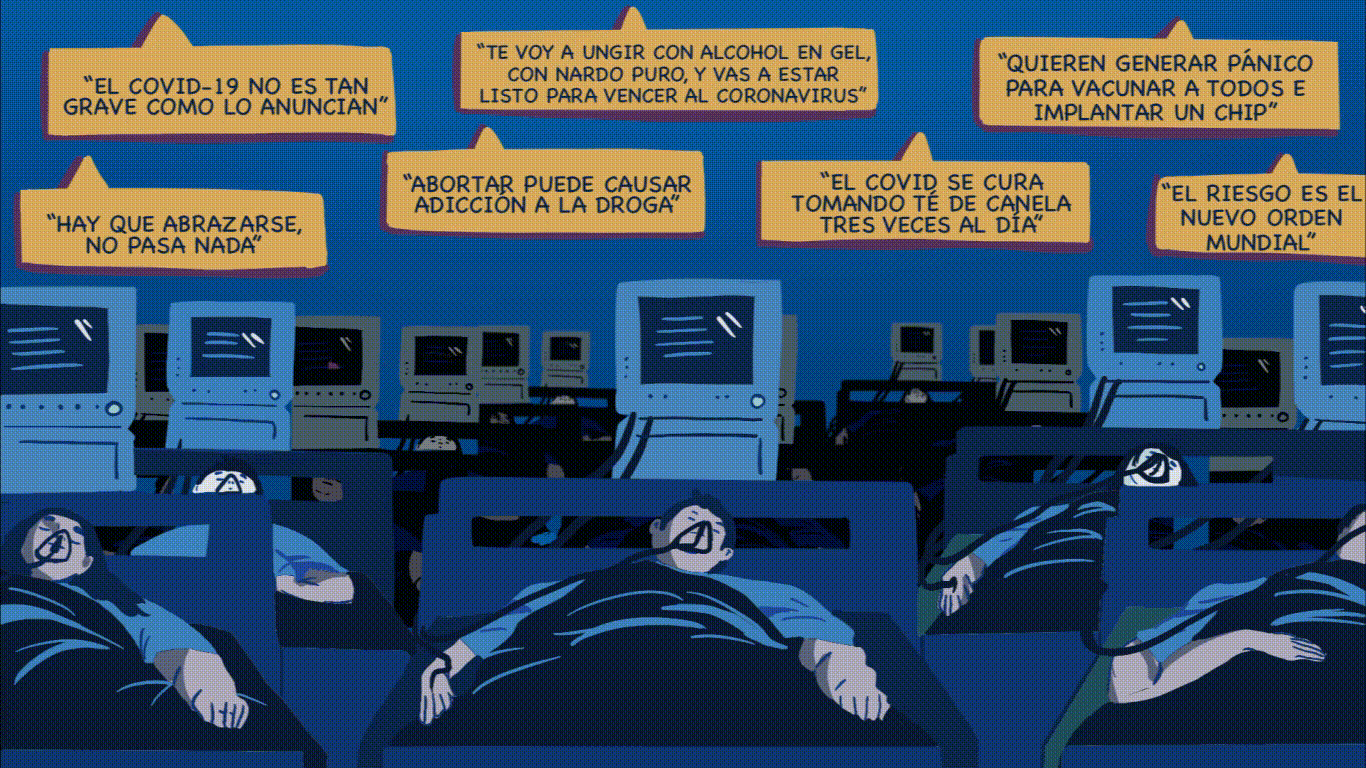
*With Gloria Ziegler, Kennia Velázquez (PopLabMx), Andrea Dip and Mariama Correia (Agencia Pública)
"It's very likely that with this vaccine (the one being developed against Covid-19) they will place a geolocation nanochip inside our bodies," said Argentine presidential candidate, Alberto Savazzini, an admirer of Jair Bolsonaro and leader of the God is Love (I.D.E.A.) organization, a small evangelical church in Buenos Aires. Savazzini's statement draws forth one of the points that the most fundamentalist religious groups in Latin America are driving during the pandemic, appealing to fear and guilt: they say that the coronavirus was invented in a laboratory, that the vaccine in progress will be an instrument to control humankind and that this crisis is the result of a long series of sins.
One of the primary features of this health crisis is uncertainty. With no specific cure, with experimental clinical treatments, ongoing knowledge about the virus, with intensive care units collapsing, thousands of deaths and a galloping economic crisis for thousands, unemployed due to isolation measures, dozens of fundamentalist organizations have used this context to promote measures and actions that have even put people's health at risk. Their leaders have questioned health measures and called acquired rights, such as legal abortion, equal marriage, and gender-sensitive education, a sin. In this context, they have found dangerous allies for health: anti-vaccine movements.
Unsaintly Powers is a journalistic investigation led by OjoPúblico in Peru, Argentina, Brazil and Mexico, together with Agencia Pública and PopLab, which discusses and details specifically the role that these ultraconservative political and religious organizations are playing during the health crisis.
As part of this research, the team of reporters built a preliminary database of 298 actions promoted, between March and May, by 120 political actors and religious leaders from different churches, cults, parties and organizations.
The report records actions in Peru, Argentina, Brazil and Mexico, which range from anti-sanitary recommendations, speeches against acquired rights, false remedies and arguments with no scientific evidence that put their followers at risk, and legal initiatives to cut access to abortion in countries where it is legal. The reports in this journalistic series also detail that the isolation measures have not stopped tithing. In all countries, believers must continue to pay tithe, even if parishioners have been affected by the quarantine or have lost their jobs because of these restrictive measures.
The Common Agenda
It is not the cult what brings together the most fundamentalist organizations in the region, but the agenda. After the first cases of coronavirus were detected in Latin America, these religious and ultraconservative organizations simultaneously rejected mandatory quarantines, spread conspiracy theories that the coronavirus had been created in a laboratory, and aimed their attacks at the World Health Organization. Several of these religious and political leaders, such as the Argentine Fernando Secin (physician) and Gabriel Ballerini (member of the Board of Directors of the Argentine Evangelical Baptist Confederation), even celebrated the withdrawal of funding for this entity, announced by U.S. President Donald Trump.
In Argentina, but also in Peru and Mexico, these organizations have begun to establish alliances with other actors, "who share their rejection of the gender rights agenda. Among them, an important number of Catholics. Gradually a battlefield is opening up across all society," said Argentine sociologist and anthropologist Pablo Semán, specializing in popular culture and religion, in an interview with OjoPúblico. One of the expressions of this political coalition is represented by inter-religious platforms such as "Con mis hijos no te metas” (Don't mess with my children).
In addition to their political agenda, two of the actions promoted by some of these organizations put the health of their believers at risk. In Brazil and Peru, when COVID-19 cases had not reached the current painful figures of more than 30,000 and 4,000 deaths, a group of evangelical churches continued to call for their mass services and recommend their believers faith as the only cure. "Don't worry about the coronavirus, because this is Satan's tactic," said religious leader Edir Macedo, head of the Universal Church of the Kingdom of God, an organization investigated for money laundering and fraud for more than US$ 765 million collected from tithes from their believers.
Not only did they drive the mass concentration of people, but during the following weeks they spread false remedies. "I am going to anoint you with alcohol gel, with pure spikenard and you will be ready to defeat the coronavirus," said Héctor Aníbal Giménez, founder of the ministry World Summit of Miracles and one of Argentina's best-known evangelical pastors. In Mexico, the congressman for the Social Encounter Party in Sonora, a center-right political organization founded by the former evangelical pastor Hugo Eric Flores Cervantes, went so far as to say that COVID-19 “is not as serious as announced” and "that it is cured by drinking cinnamon tea in the morning, at noon, and at night.”
The Public Prosecutor's Office of the City of Buenos Aires opened an investigation on Pastor Aníbal Giménez, for offering a false treatment for the disease. But this does not always happen, even when dozens of these leaders manage different media or run radio shows with thousands of followers. Disinformation has not only come through these fundamentalist groups, but also with self-styled progressive presidents.
In March, when the first cases in Mexico had already been identified, Andrés Manuel López Obrador said: "Look, about the coronavirus, they say you can't hug; of course you can hug, nothing will happen.” During the following weeks, the leader of a strange coalition that brings together the leftist Workers' Party, Morena, and the right-wing Social Encounter Party, continued with his trips, rallying, hugging, and kissing people in his public presentations. At the other extreme, in Brazil, President Jair Bolsonaro also underestimated the pandemic.
Promoting Anti-Rights Measures
More than 60% of the actions and speeches analyzed for this report are related to the harsh criticism and legal measures that these religious and political groups have promoted against legal abortion during the pandemic. The questioning began in Mexico and Argentina, where abortion is legal on certain grounds such as rape and the mother's health, when the authorities issued regulations that defined legal abortion services as essential.
"Hospitals are closed; only open for emergencies and for abortions. The level of abortionism in this government is such that it considers abortion as a public health emergency and this in the midst of a pandemic," questioned Gabriel Ballerini, leader of the NOS Front, a right-wing political coalition in Argentina. This and other organizations sought for the Argentinian government to block clinical services for the legal termination of pregnancies.
In Mexico, from the first days of the quarantine, ministers from various cults pointed out that the new coronavirus is a punishment for abortion and equal marriage. “There are other things we should pay more attention to as the possible causes of this pandemic, for example, abortion,” the Evangelical Baptist Church reported. But this is just one of more than 70 organizations that have been actively promoting actions and statements against acquired rights, between March and May of this year. But one of the toughest opponents to legal abortion in Mexico is one of the men closest to the president: Arturo Farela, leader of the National Confraternity of Evangelical Christian Churches (Confraternice), which groups around 7,000 churches throughout the country.
According to the preliminary analysis of the database for this report, in Mexico PAN and Social Encounter have been the most active parties in recent months with lobbies to reverse abortion and equal marriage. In addition, during the emergency, both organizations have opposed amnesty measures for women prisoners accused of illegal abortions. There are an estimated 880 such cases in the states.
The situation is similar in Brazil. In March, the Pérola Byington Hospital in São Paulo suspended legal abortion services. In this country, abortion is permitted only in cases of rape, risk to the woman's life and fetal anencephaly. Pérola Byington is the referral hospital, especially to help women victims of sexual violence coming from different parts of the country. During the pandemic, the State of São Paulo chose this medical center that attends Sexual Violence and Legal Abortion Service outpatients to convert it into a place for COVID-19 detection. Only after the Public Prosecutor's Office and the Public Defender's Office charged hospital authorities, they said outpatient care was suspended to "reduce the movement of people and prevent infection”. With the public pressure, the service was restarted.
In Peru, where only therapeutic abortions are regulated and all other forms of termination of pregnancy are criminalized, a group of organizations linked to the “Don't mess with my children” platform, questioned the publication of a health directive guaranteeing access to family planning and maternal health during the pandemic. The directive states that medical personnel may "assess the termination of pregnancy, at any time, in case the life of the pregnant woman infected by COVID-19 is at risk."
The rejection was supported by organizations of ultra-conservative lawyers, media organizations like Aciprensa, and Carlos Polo, Latin America director of the Population Research Institute, a self-described pro-life organization based in the United States.
Political Alliances
Although within religious organizations, the Catholic Church still holds the largest percentage of believers in the region, the advance of evangelical groups has been more strategic in their alliances with political organizations. Brazil has the highest percentage of evangelical followers with 26%; then come Peru and Argentina, with 15% and 13%, respectively, and finally Mexico, with 9%. These figures, however, say nothing. In the country led by Lopez Obrador, the presence and proximity of the National Confraternity of Evangelical Christian Churches has reached its highest point with this government that won the election by calling itself progressive.
In Argentina, the evangelical churches are diverse. But one of the best known is the Universal Church of the Kingdom of God, linked to its Brazilian counterpart led by Edir Macedo; however, according to experts, it does not hold the most believers. Most evangelical followers are around smaller churches. The number of parishioners in this country has grown 6.3% during the past decade, according to the "Second National Survey on Religious Beliefs and Attitudes" by the National Council of Scientific and Technical Research (CONICET).
In Brazil, evangelicals represent one of the main political forces. Many churches have media outlets, such as the Universal Church of the Kingdom of God, which has influence in Peru, Argentina, and other countries in the region. In addition, as reported by Agencia Pública, there is the Record Group, the fourth largest media conglomerate in this country, linked to Edir Macedo.
The Universal Church is also directly linked to the Republican political party, with two of Bolsonaro's children among its members, Councilman Carlos Bolsonaro and Senator Flávio Bolsonaro. The current president of this party is congressman Marcos Pereira, and “his candidacy for the presidency of the House of Representatives next year would be promoted by President Bolsonaro, in alliance with Edir Macedo,” according to Agencia Pública.
The political participation of evangelicals through alliances has spread throughout the region. Behind the massive marches in Argentina and Peru against abortion and the gender approach, there are fundamentalist organizations that express their political proximity to President Jair Bolsonaro. In Peru, politician Rafael López Aliaga, secretary general of the National Solidarity Party, called himself the "Peruvian Bolsonaro" at the beginning of this year.
In a context of political polarization and crisis, the distance between the State and the churches seems to be narrowing at times. In contrast to Peru, Mexico's political constitution guarantees the separation of Church and State. For this reason, religious organizations in Mexico have no access to, for example, licenses to operate radio or television channels. Here state secularism began in the mid-19th century, but paradoxically a so-called left-wing government has shortened this healthy distance.
In Brazil, the Constitution also guarantees a secular state, but the current Bolsonaro government does not comply.
Postpandemic
What will the situation be in a post-pandemic context? "What is happening with constituents in Latin America is that, for thirty years, they have been experiencing very strong enchantments and disillusionments, related to a decreasing capacity of the States to attend to the needs of very broad sectors,” Semán indicated.
This translates into a pendular behavior during elections: sometimes, constituents vote for the government, other times for the opposition. And evangelicals are no strangers to this phenomenon. "As majorities are affected, they tend to seek strong leadership and, lately, rather punitive programs. This is how voters reach the right wing and, among them, the evangelicals," says Argentine sociologist and anthropologist Pablo Semán.
Marcos Carbonelli, who holds a doctorate in Social Sciences and is a researcher with Conicet, said in an interview with OjoPúblico that the influence of evangelicals could increase in the area of public policy in the coming months. "In times of poverty, imperfect States, like ours, need mediators to reach the territory. And that is where the religious make headway," he said.
The economic and social crisis of the coming months could become fertile ground for ultraconservative ideas and proposals. Religious freedom is a guaranteed right, but as detailed by the reports in this series coordinated by OjoPúblico, in Latin America the political lobbying of these fundamentalist organizations is affecting civil rights that promote equality and universal access to health.
 Tienes reportajes guardados
Tienes reportajes guardados















